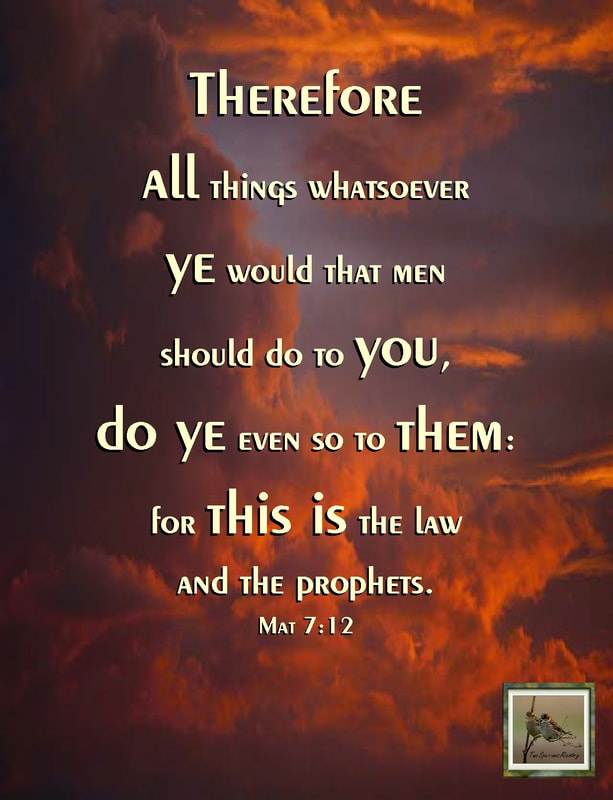Reference Notes:
Verse: 1
Mark's account is peculiar in some things in comparison with the other gospels. The Sabbath ended at sunset; the women then made their preparations to visit the tomb at dawn.
Might come and anoint him. This shows that they did not expect his resurrection. The Jews were wont, as a mark of honor, to surround the body in the tomb with fragrant spices. Nicodemus (Joh 19:39-40) had brought spices. Perhaps the women did not know this; perhaps they wished, in addition, to render their own loving service.
Verse 2:
Who shall roll away the stone? They were not aware of the deputation of the Jewish rulers which had gone to Pilate and secured the sealing of the stone and the setting of the watch over the tomb (Mat_27:62-66), and their only anxiety was how they would get the great stone, with which the rock-cut sepulcher was closed, rolled away.
Looked. Rather, looking up. They may have been looking down before, absorbed in the conversation. The tomb was probably above them, cut horizontally in the face of the rock at a slight elevation.
Verse 5:
Saw a young man. Matthew calls him an angel. Luke says that there were two who "stood;" i. e., appeared suddenly. Besides, they might easily have both sat and stood during the interview; might have been both outside and inside at different moments, and they might have been seen both singly and together in the sudden and shifting apparition.
Verse 6:
He is risen. Through woman (Eve) death was first introduced into the world; to woman the first announcement was made of the resurrection. Here we see the great love of God for woman, and her redemption.
Verse 7:
Tell his disciples and Peter. Observe that as Christ's first appearance is to Mary Magdalene (Joh_20:18), out of whom he had cast seven devils, so his special message is to Peter, who had denied him. A touching commentary on our Savior's saying that he came to save sinners.
Verse 9:
She had gone with the other women to the sepulcher , parting from them, perhaps, before their interview with the angel, and on finding Peter and John she had come with them back to the spot; and it was at this second visit, it would seem, that Jesus appeared to this Mary Magdalene. To a woman was this honor given to be the first that saw the risen Redeemer, and that woman was NOT his virgin-mother.
Verse 11:
And they, when they had heard that he was alive, and had been seen of her, believed not — This, which is once and again repeated of them all, is most important in its bearing on their subsequent testimony to His resurrection at the risk of life itself.
Verse 12:
— The reference here, of course, is to His manifestation to the two disciples going to Emmaus, so exquisitely told by Luke in Luke 24:13.
Verse 13:
And they went. Back to Jerusalem, to the upper room where the ten disciples were assembled (Luk_24:33).
And told it. They related their whole amazing encounter.
Verses 15-18
Go into all the world. Jesus is the world's Savior; he died for all; the gospel must be preached to all. In the first commission (Mat_10:6) they were sent only to Jews.
Preach the gospel. The good news of salvation through Christ; the way of life.
To every creature. To every mortal. None are denied the Savior if they will have him.
He that believeth. Believeth the gospel message; believes in Christ as his Savior.
And is baptized. These are the conditions of pardon; faith in Christ and obedience to his command. If any one has not faith enough in Christ to obey him he has not faith enough to be saved.
He that believeth not. Remains in a state of unbelief. Such have no promise. See Joh 3:18.
" They are commanded to go and tell the glad story, and assured that miraculous credentials shall be given to those of "them who believe" and tell the wonderful tidings.
In my name shall they cast out devils, etc. See Act_2:4; Act_5:16; Act_8:7; Act_16:18; Act_28:3.
We need to understand that this command and promise is not to be abused, or exploited. We are not to “tempt” the Lord by going into snake pits, thinking we will come out unbitten; God is not to be mocked. Jesus overcame this temptation in the wilderness, when Satan told him to jump off the edge of the cliff; and misused scripture to deceive him.
Verse 19:
He was received up into heaven. In Acts it says, "a cloud received him out of their sight." He did not fade away from sight, but a cloud came as a veil between him and the eyes of the gazing disciples. The cloud can be pierced by the eye of faith, and our Lord seen interceding for us at the right hand of God.
So then after the Lord — an epithet applied to Jesus by this Evangelist only in Mar_16:19, Mar_16:20, when He comes to His glorious Ascension and its subsequent fruits. It is most frequent in Luke.
had spoken unto them, he was received up into heaven — See on Luk_24:50, Luk_24:51.
And sat on the right hand of God — This great truth is here only related as a fact in the Gospel history. In Acts ch. 7:55-56 He appeared seated also to Stephen before his death, and it is thereafter perpetually referred to as His proper condition in glory.
Verse 20:
Mar 16:20
And they went forth, and preached everywhere, the Lord working with them, and confirming the word with signs following. Amen — We have in this closing verse a most important link of connection with the Acts of the Apostles, where He who directed all the movements of the infant Church is perpetually styled “THE LORD”; thus illustrating His own promise for the rounding and building up of the Church, “LO, I AM WITH YOU alway!”
In the Acts of the Apostles is the history of their preaching. It should be studied to see how the Apostles understood and preached the Commission of the Lord. The Commission of Christ is to his Church; its field is the world; its work is to preach the gospel; its congregation embraces every creature; its offer is a free and full salvation; the conditions of salvation are faith in Christ, and obedience to him; the consequence of rejecting Christ's salvation is eternal condemnation.
Conclusion:
When the Sadducee’s came to Jesus tempting him, because they did not believe in the resurrection of the dead, he answered them and said:
Mat 22:32 I am the God of Abraham, and the God of Isaac, and the God of Jacob? God is not the God of the dead, but of the living.
In this passage, he proclaimed himself to be God in the flesh, and that all those who believed in God before Him, were indeed alive, because of Him.
His resurrection from the death on the Cross, put the seal of truth to his proclamations. No other religion can make this claim. Buddha did not rise from the dead, Mohammad did not rise from the dead, only Christ is seated in heaven with the Father.
The most important question for you is:
Do you know Christ as your Savior? If this was your last day, do you have the assurance of going to heaven, because you’ve asked Him to forgive your sins and put your trust in Him?
If you were to die today, are you ready to meet the Lord?








